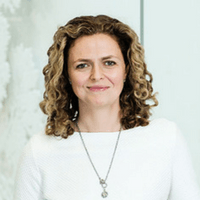Introduction
Today’s increasingly fluid family set-ups carry serious wealth management challenges, particularly around inheritance and tax. Here, Melissa Lesson and Charlie Sosna, private client lawyers at Mishcon de Reya, highlight the main danger areas High Net Worth Individuals need to be aware of.
We live in an increasingly fluid world where the modern family often no longer fits the rules and constructs established by the judiciary over the course of the past century. Children can be adopted from abroad, created using egg donors, or sperm donors, or be carried with the aid of a surrogate.
As the legal world creaks and groans in order to adapt and keep up, these modern families need guidelines as they navigate these unchartered waters around the globe.
Unmarried couples and same-sex marriages

In England, despite the common misconception, there is no such thing as a “common law marriage”. Upon separation, unmarried couples have very limited financial claims against one another, and these essentially revolve around any potential interest by one in a property held by the other. If there are children, the claims are wider and more significant, but are primarily for the children in terms of providing housing and maintenance for the child’s minority.
In other jurisdictions, the legal avenues can be even more limited. Russia, Turkey and a number of Eastern European countries do not recognise same-sex marriage or any form of registered partnership, such as a civil partnership. In the United Arab Emirates, under Sharia Law it is a criminal offense for an unmarried couple to live together. Same-sex marriage does not exist and same-sex relations are punishable by a minimum of one year’s imprisonment. This is also the case in a number of other Middle Eastern and African countries. Where same-sex marriage or civil partnership is not recognised, there will be no option to divorce or dissolve the partnership, and no way to obtain financial provision between the couple or for any children.
Same-sex marriage is permissible in England, but not in Northern Ireland and so a same-sex couple married elsewhere would only be recognised in Northern Ireland as a civil partnership. Same-sex marriages conducted abroad will ordinarily be recognised in England, provided that they have been properly entered into in the relevant country where the marriage took place, and that same-sex marriage is permissible in the country in which each party is domiciled. This can lead to potential problems: for instance, same-sex couple A (Russian) and B (Slovenian) marry in the Netherlands and move to England whilst retaining their respective domiciles of origin, and thereby find themselves in a situation where their marriage is not recognised because same-sex marriage is not permissible in either Russia or Slovenia.
The non-recognition of a same-sex marriage in a jurisdiction that does not permit them, can also have significant knock on effects on immigration status with residency permits and dependency visas not being given to the “spouse” holding the different nationality. Recent case law from the European Court of Justice has assisted within the EU by ensuring that freedom of movement of EU citizens extends to a same-sex spouse, regardless of whether or not the marriage is recognised in that jurisdiction.
![]()
Where same-sex marriage or civil partnership is not recognised, there will be no option to divorce or dissolve the partnership, and no way to obtain financial provision between the couple or for any children
Adoption, donors and surrogacy
In England, a child may be adopted by a single person, a cohabiting or married couple – same-sex or otherwise. The position varies in other jurisdictions, which can lead to a parent of an adopted child in England not being recognised as such in another country. In addition, if adopting a child from abroad, the criteria can be very different and is country dependent. Certain countries will place age limits on the adopting parents, will require the parents to be married and for a specified length of time. Many countries (such as Russia or Greece) will not permit same-sex couples to adopt children jointly.
Once the various criteria have been fulfilled in that country, thereby permitting the child to leave, upon arrival in England it may be necessary to apply for an Adoption Order if the country where the adoption took place is not a signatory to the 1993 Hague Convention (which would mean that the adoption would be recognised in England). The parents will also need to apply for a visa for the child which can be a difficult process and take a significant amount of time, during which the child may not be able to enter the UK. The parents may be required to show that they have the financial means to support the child, that the adoption was in the best interests of the child and be able to provide details as to the child’s background.
Regardless of whether the egg or sperm were donated, the parents of a child are deemed, in England, to be the woman who gave birth to that child and her husband or wife. This is generally the case in countries where same-sex marriage is legal. Procedures, however, differ greatly between countries. In the UK, donors are not anonymous, unlike in Spain and Greece. In Spain, anyone can receive egg donor treatment, whereas in Greece, lesbians cannot. Age limits also apply for the mother-to-be; in Hungary the limit is 45, whereas in India it is 60. In the UK, generally only one embryo will be transferred; in Brazil this can be up to four, and in Malaysia there is no official limit. In the UK, gender selection is not permitted unless for extremely limited medical reasons; in the US gender selection is permitted.
Commercial surrogacy is not legal in the UK, although a surrogate can be reimbursed her expenses. Because surrogacy agreements are not legally enforceable in England, the surrogate can elect to keep the baby at the end of the pregnancy, if she has changed her mind. A parental rrder is required once the child is born in order to grant parentage to the prospective parents (such order to be made between six weeks and six months from the birth), and the surrogate is required to give her consent.
Surrogacy, is subject to a variety of different rules and regulations depending on the country in which it is taking place. For instance, in Singapore, it is illegal. In Vietnam, it is only available to married childless couples, and the surrogate must be a relative. In the Ukraine, by contrast, commercial surrogacy (especially for international couples) is relatively popular as the prospective parents are recognised as the biological parents from the moment of conception; they are recorded on the birth certificate and unlike in England, the surrogate has no parental rights.
Difficulties can however once again arise in bringing the child of a successful surrogacy arrangement to the UK. Given that a baby is considered the child of the birth mother and her spouse, should the surrogate be married, the baby will not automatically be eligible for British nationality even if the commissioning parents are both British. The child would first need to be registered with the Home Office. Even if the surrogate is unmarried, a passport can only be applied for if the commissioning father has a genetic link (proved by DNA testing) to the child, and is himself British. On the passport application the surrogate is named as the mother until such time as a parental order is obtained. If the father does not have the genetic link, but rather the mother does (and hold’s British nationality) then the parental order must be obtained first, before the Passport application can be made. In some countries, the child will acquire nationality on birth (such as in the US), and therefore will be able to come into the UK on a visitor’s visa pending the above.
![]()
Given that a baby is considered the child of the birth mother and her spouse, should the surrogate be married, the baby will not automatically be eligible for British nationality even if the commissioning parents are both British
Tax consequences of cohabiting partners
Same-sex couples have legally been able to formalise their relationships in England and Wales via a civil partnership since 2004 and via marriage, since 2014. However, many couples in a long-standing relationship have never found the need to take up either opportunity, believing that it makes no difference to them. Cohabiting partners that have not entered into a marriage or civil partnership leave themselves in a significantly worse UK tax position on death. Assets that pass between spouses/civil partners on death can pass free of inheritance tax. This relief is not offered to long-standing couples who do not take the marriage or civil partnership route, and could leave an exposure to 40% inheritance tax on the first partner’s death.
The inheritance tax treatment of same-sex couples outside of the UK is jurisdiction specific, and is likely to depend firstly on whether the jurisdiction recognises marriage and/or civil partnership and secondly on the jurisdiction’s approach to taxation. In jurisdictions, such as Russia and Turkey, where both marriage and civil partnership are not recognised, same-sex couples are likely to be denied the benefit of any favourable inheritance tax treatment. In contrast, jurisdictions which recognise same-sex civil partnership but not same-sex marriage may afford civil partners a tax treatment equivalent to the tax treatment afforded to spouses. Switzerland is one jurisdiction to take such an approach.
Effect of marriage on wills
Conversely, many same-sex couples decided to marry or enter into a civil partnership once able to do so. Having being in a long-term relationship that was not formalised they will have entered into wills (pre-civil partnership/marriage) and unwittingly revoked their wills on entering into the civil partnership/marriage, leaving their estate intestate. This could not only leave their partner/children in a worse position financially, but may also revoke any appointment of guardians for their minor children.
Same-sex civil partners who have converted or wish to convert their civil partnership into marriage can, however, rest assured that such a conversion will not revoke any of their wills made previously.
![]()
Same-sex couples who do not widely define “children” in their wills are therefore exposing themselves to a risk that a child adopted, born through fertility treatment or born through surrogacy, does not receive the testamentary gift intended for them
Providing for children
Wills are often drafted to make testamentary gifts to the testator’s children as a group, rather than to each child individually. Where a definition of “children” is not provided, case law and statute will determine the word’s interpretation. Same-sex couples who do not widely define “children” in their wills are therefore exposing themselves to a risk that a child adopted, born through fertility treatment or born through surrogacy, does not receive the testamentary gift intended for them.
The law’s approach to defining “children” differs according to whether the children are adopted, are born through fertility treatment, or are born through surrogacy. Adopted children are treated as children of the adopters from the date of adoption. As outlined above, where a child is born via fertility treatment (the most common being artificial insemination and IVF) after 06 April 2009, the woman carrying the child is automatically treated as the mother. A civil partner or spouse of the mother is automatically treated as a second parent unless he/she did not consent to the treatment. However, a partner who is neither married nor a civil partner to the mother, in order to be treated as the child’s second parent, will be required to meet agreed parenthood conditions. Firstly, the consent of both the mother and the partner must be obtained, and secondly the mother and the partner must not fall within a prohibited degree of relationship (such as a relationship between close relatives).
Same-sex couples who have not married and who are not civil partners should be aware that the rules above will only apply if the fertility treatment was given in the UK by a provider licenced under Human Fertilisation and Embryology Act 2008. If the fertility treatment occurred elsewhere, they should ensure that the definition of children in their will is drafted widely enough to include a child born from fertility treatment undertaken outside the UK.
In cases of surrogacy, a parental order will be required for a child to be deemed to be the child of the commissioning parents. As a parental order can only be made between 6 weeks and 6 months from the birth of the child, a same-sex parent who passes away during the period between the child’s birth and the granting of the parental order may risk his/her testamentary gift to the child failing should the definition of “children” not be drafted widely enough.
![]()
Same-sex spouses or civil partners may be restricted from inheriting from one another in jurisdictions which do not recognise same-sex marriage or civil partnerships
International estate planning
Same-sex spouses or civil partners may be restricted from inheriting from one another in jurisdictions which do not recognise same-sex marriage or civil partnerships. Forced heirship rules, in place in states such as Saudi Arabia, Indonesia and the United Arab Emirates, require at least two-thirds of a person’s estate to be divided among that person’s legal heirs in shares specified by law. Given that same-sex marriages or civil partnerships are not recognised in these jurisdictions, a person’s same-sex spouse or civil partner will not be a legal heir and will therefore be automatically restricted to one third of their spouse or civil partner’s estate.
In jurisdictions which are not bound by forced heirship rules but which do not recognise same-sex marriages or civil partnerships, same-sex couples should ensure that wills are specifically drafted to refer to their partner or spouse by name. If they do not do so, same-sex couples may leave their estate vulnerable to claims from the deceased’s relatives and family, who may call into question the surviving partner’s status as a spouse or civil partner.
It has become common for many international families to use trust structures to hold and invest their wealth. The relevant parties should ensure care is taken over the definitions of spouse, civil partner and children in the trust and letters of wishes so that there is no dispute over who can benefit. Particular care should also be taken where children have been born via an American surrogate. The USA (California in particular) is seen as at the forefront of legal surrogacy, and many couples will travel there to make the most of the certainty their rules offer. However, having a child via an American surrogate could lead to the child being viewed as a “US Person” which can have US reporting requirements for trustees, and the relevant child, which should also be taken into account.
Conclusion
As the legal world struggles to keep pace with the increasing fluidity of the modern family, individuals must be alive to the immigration, tax, and estate planning implications of formalising relationships via marriage or civil partnership, or having children via alternative means.
Important information
The points contained in this piece are for informational purposes only and are not intended in any way as financial, legal or investment advice. We always advise consultation with a professional before making any significant financial planning decisions.





